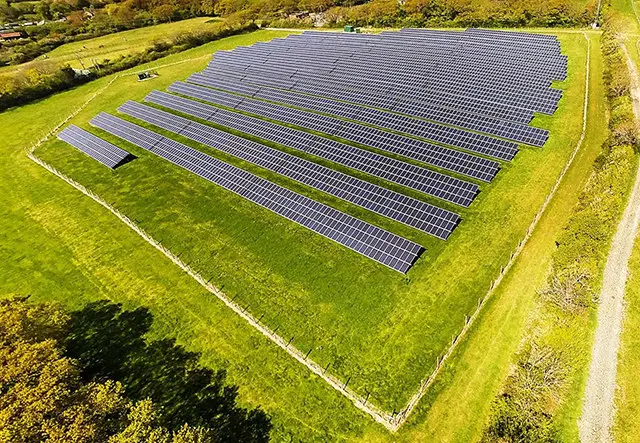Two community-led renewable energy schemes on the Isle of Wight have received a total of £73,000 in feasibility funding from the Rural Community Energy Fund. Wight Community Energy will use the grants to test the viability of developing a solar facility in Sandown as well as a new hydrogen production facility.
The fund is administered by the South West Energy Hub in partnership with the Solent Local Enterprise Partnership (LEP), which is supporting the projects.
A world first
The proposed solar power facility forms part of a world first project called Riding Sunbeams, that investigates directly powering railways with renewable energy.
If shown to be viable, the scheme will be delivered in partnership with Wight Community Energy, Community Energy South and stakeholders including Southern Water, Network Rail and South Western Railways – the ambition is to enable the Island Line to reduce its energy costs and cut carbon emissions.
Funds will be raised through a community share offer, with any surpluses reinvested into projects which benefit local people.
Producing hydrogen
The second project will look at using existing solar capacity to produce hydrogen, as an alternative to high carbon fossil fuels. Potential users of hydrogen could include the ferry and bus companies as well as the rail network, commercial vehicles, fishing fleets and pleasure yachts.
The project would involve discussions with these user groups as well as work to investigate hydrogen storage, distribution and safety requirements.
Palmer: A radical approach is needed
Colin Palmer spokesperson for Wight Community Energy said,
“We are in the early stages of both these projects and this funding award will help us take a big step forward.
“The constraints of the Island’s electricity network mean that a radical approach is needed if we are to be successful in achieving a shift to 100% renewable energy, an ambition we share with the Isle of Wight Council.
“We believe that developing hydrogen production while expanding our existing solar capacity could be a really promising avenue to explore and we are excited to progress these feasibility studies.”
Hunt: A key priority for the Solent region
SJ Hunt, a Director at the Solent LEP, said,
“The transition to sustainable low carbon renewable energy solutions is a key priority for the Solent region. These innovative projects are a fantastic example of how this can be achieved through the community working in partnership with local organisations and businesses. We look forward to seeing the results of the feasibility studies.
“One of the key priorities in our emerging Solent 2050 strategy will be pioneering approaches to climate change adaptation and decarbonisation and establishing real expertise which other regions – nationally and globally – can learn from, and this is a terrific example of the Solent leading the way.”
Rattenbury: Hope Isle of Wight ambitions inspire others
Jon Rattenbury, Programme Manager at the South West Energy Hub, said,
“We are really pleased to be able to award grant funding to these projects which will not only help the environment but also benefit the Island economy and residents.
“We hope the ambition seen on the Isle of Wight will inspire more communities across the South West Energy Hub region to develop their own green energy projects.”
Wight Community Energy
Wight Community Energy already operates a solar farm on the Island for which it leases land from local resident farmers.
Surplus income generated by the solar farm has been used to tackle fuel poverty, working with local charity The Footprint Trust.
As a result, some 80 Island households have been helped to reduce fuel costs typically by £300 per annum.
News shared by Bex on behalf of Solent LEP. Ed





